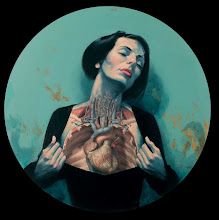
For the few remaining readers who haven’t thrown themselves in front of an eighteen-wheeler after reading my last two blogs, read this: I vow to be more positive, at least for today.
Sure, I get angry when I see injustice and abuse, enraged at people and systems that try to squash the life out of others due to their own need to survive. You all get that about me.
Just yesterday I heard, “Why can’t she say anything nice?” Though not directed at me, I took it to heart. So here I am, the first early bird of what’s not yet morning, breathing in the crisp, winter air, grateful to be alive.
What’s good about we humans is our willingness to care about others. As a former nurse specializing in end-of-life care, I have witnessed countless people broken by illness -- financially, emotionally and physically. When I have been injured or sick and unable to care for myself, it has been my friends who have brought me back to life and contributed to my healing.
The response to the catastrophic earthquake that hit Haiti on January 12 has been overwhelmingly positive; the outpouring of financial aid, given the economy, astoundingly generous. According to Stacy Palmer, editor of The Chronicle of Philanthropy, as of January 21, 2010—less than 10 days after the quake --- over 305 million dollars had been donated, and that’s only to American charities. Over 25 million of these dollars was donated to the Red Cross via text messaging alone! The immediacy of response in disasters is critical; it doesn’t help much to offer a hand weeks or months later. The world pulled together to help perfect strangers as if they were kin.
I like the term communitariansim. Communitarians argue that there is a need to balance individual rights and interests with the interests of the community as a whole. We are shaped by the values and the cultures of our communities, which is why I haven’t broken into your house and eaten your chocolate or taken the air out of your tires at the dog park because you refused to share it (see Evil). My parents, teachers and peers taught me that stealing was wrong (although they never mentioned anything about tires). A healthy society must balance liberal rights with community responsibility, in other words, too much individualism can be a bad thing.
In Green Valley, Arizona, we tend to help one another out. Green Valley has been called a) God’s waiting room; b) a great place to live; c) an active adult retirement community; d) a really bizarre place. Given the fact that there is no real infrastructure to age-in-place, if your health declines you will either move back to Minnesota to live with your son or if you have any, deplete your assets and move into a pricey assisted living facility.
Aging people have more health issues and therefore more need for community. My friend Lee, who died a month shy of her 100th birthday, abhorred the idea of community. Community implied people, in numbers, and the very thought of it made her recoil in disgust. Ultimately, she was unable to survive without the help of it, a chain unbroken that helped her step through death's door.
Most of my closet friends are women living alone. Correction -- women living alone with dogs. We take turns getting sick and having problems. One such friend now needs help. Together we join hands in support, forming a community of Light to reach out in known and unknown ways. An email to a world renown expert asking for help, a few slices of quiche, a call, an encouraging word, or just being present. We need one another; if it is not our turn today, it will be one day.
There was never an expectation of a response to the email asking for direction and advice, just a stab-in-the-dark hope. After all, these doctors are too busy to reply to a outsider asking for help. Surprisingly, in less than 12 hours, a response arrived: My mother died yesterday, heading to Prague, if you still need help, call me next week, see phone below. JP
In the grip of grief, a stranger reached out to help someone in need. We are some amazing beings, we humans. Together we join hands in support, forming a community of Light to reach out in known and unknown ways.
I am encouraged.


